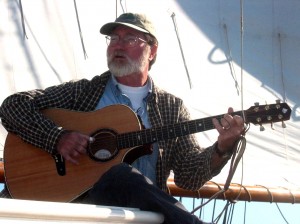For anyone’s who’s not see it yet, you should visit the website of Coriolis, an e-journal in Maritime Studies published by Mystic Seaport. The most recent issue features a great article by Colin Dewey on the ocean in English poetry from Dryden to Coleridge, an article on Melville’s poem “The Coming Storm,” and a nice intro by literary studies editor Dan Brayton.
If you’d like to contribute material, here’s the description:
Coriolis: Interdisciplinary Journal of Maritime Studies
A refereed forum on works of human interaction with the sea.Named for the prevailing global force that shapes human maritime experience, Coriolis offers scholars and serious researchers a refereed forum in which to disseminate work on human interaction with the seas. We define “maritime” broadly to include direct and indirect influences on human relationships through the fields of history, literature, art, nautical archaeology, material culture, and environmental studies. Coriolis is open to discussion of maritime connections through all periods and human cultures, and it includes freshwater as well as saltwater marine environments. We encourage works that explore interdisciplinary and multidisciplinary approaches. The journal is international in scope and purpose, and we particularly welcome English-language scholarship from outside Europe and North America.
The principal contact is Paul O’Pecko <paul.opecko@mysticseaport.org> of the Blunt Library at Mystic, or you can contact anyone on the Editorial Team.
Future special issues on literature and the sea or other topics will follow!









